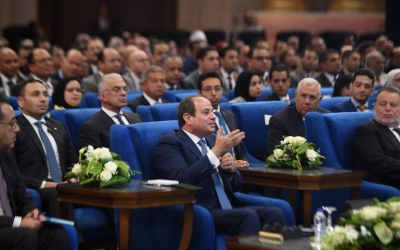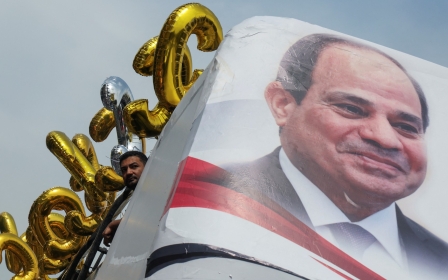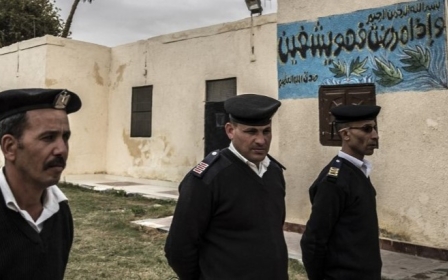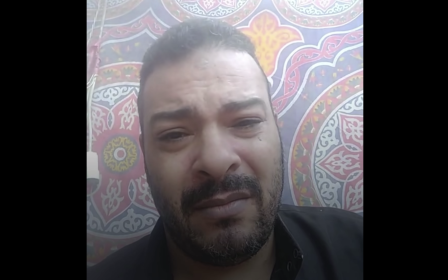Egypt elections: Pro-Sisi rallies turn into anti-government protests
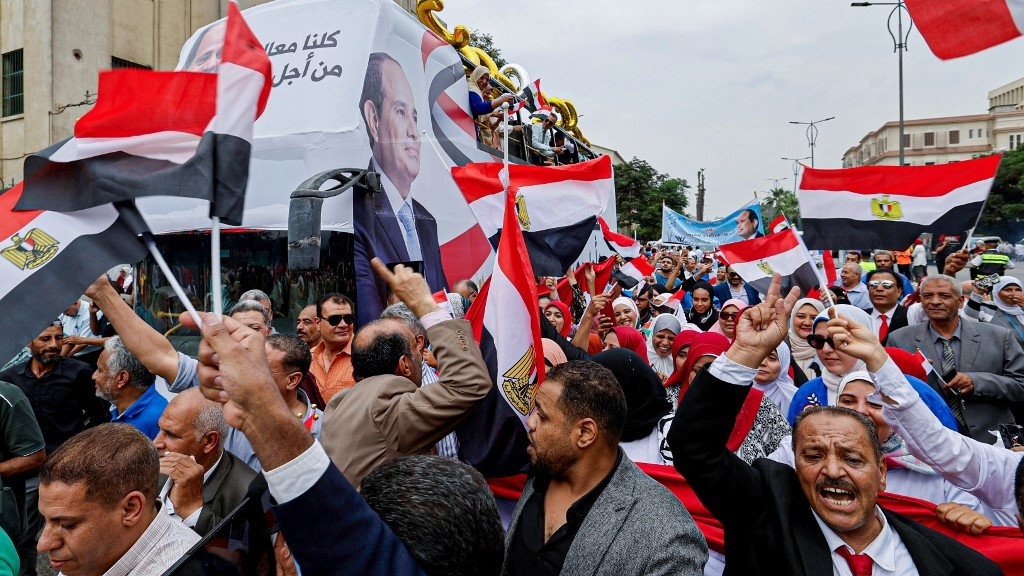
A number of state-sponsored rallies on Monday initially declaring support for Egyptian President Abdel Fattah el-Sisi following his announcement that he will be running for a third term spontaneously turned into an anti-government demonstrations in several places across the country.
Dozens of videos shared on social media, verified as accurate by a number of activists and open source investigations, showed people in Mersa Matruh, a Mediterranean city, and in the Nile Delta governorate of Menoufia, calling on Sisi to step down and burning or trampling on campaign banners of the incumbent president.
The footage followed reports of nationwide events, sponsored by the pro-Sisi Nations Future Party, celebrating Sisi's decision to run for a third term in the upcoming presidential elections scheduled for 10-12 December.
In the videos, protesters could be heard shouting “the people call for the fall of the regime”.
Small protests also broke out in other cities, including Ismailia, where dozens of people were seen chanting against the government.
New MEE newsletter: Jerusalem Dispatch
Sign up to get the latest insights and analysis on Israel-Palestine, alongside Turkey Unpacked and other MEE newsletters
In one event, people are heard saying "Carry on president" to the reverberating chants of "no" immediately after.
According to Saheeh Masr, a social media account that focuses on combating misinformation and carries out investigations, the protests occurred a few hours following Sisi’s televised speech on Monday evening declaring that he is running for a third presidential term in the December elections.
Saheeh Masr also verified that the demonstrations occurred on Alexandria Street, near the Mersa Matruh general hospital.
However, Egypt’s Ministry of Interior issued a statement on Facebook later on Monday, claiming that the people out in the streets were involved in skirmishes at an arts event.
“A quarrel broke out between some young people in the city of Matruh due to a competition over taking photos with Libyan poets and security forces were deployed to arrest perpetrators,” the statement read.
Presidential election
The election rally was initially organised by the Mostaqbal Watan party, and saw dozens of people go out in the streets directly after Sisi’s televised speech that followed a three-day conference presenting his achievements over his nine-year rule.
“If I am the right person for this role, I ask God to make me successful and make it easy for me,” he said in his speech.
“I call on all Egyptians to witness this democratic scene and to choose the right person for the role. This is the choice of all Egyptians, who I respect. I have never made promises I can't keep - all I can say is that I will keep working, working, working, and God will make things easy.”
However, the conference was also surrounded by controversy, after the president made a number of bizarre comments.
In his speech, he said that his people should accept the prospect of going hungry as the price of the country's success. He also said he could "destroy Egypt" by distributing drugs among impoverished people to create chaos ahead of the presidential elections.
Left-wing politician and former MP Ahmed Tantawi, who is positioning himself as Sisi's main opponent in the election, condemned the president's speech in a statement posted on X.
Directly addressing Sisi, he wrote: "Egyptians actually starved during your rule because of your administration. They did not see any of the development that was promised."
The presidential election will take place as Egypt, home to over 109 million people, is in the midst of a severe economic crisis that has seen the Egyptian pound lose half its value against the dollar, leading to record inflation and foreign currency shortages.
Sisi has been president since 2014, a year after he ousted his democratically elected predecessor, Mohamed Morsi, in a coup.
He won a second term in the 2018 election in a landslide victory, with 97 percent of the vote, against one candidate, himself a supporter of Sisi, after all the significant opposition hopefuls had either been arrested or withdrew from the election, citing intimidation.
Constitutional amendments in 2019 paved the way for the 68-year-old former army general to stand for an additional two terms, as well as extending the duration of presidential terms from four years to six.
The National Elections Authority (NEA) announced the dates for the polls last month, scheduled for 10-12 December, with nominations for the elections set to take place between 5-14 October.
According to the NEA's regulations, in order to be accepted as a presidential candidate, the candidate must be endorsed by at least 20 members of the House of Representatives or be supported by no less than 25,000 citizens who have the right to vote in at least 15 governorates, with a minimum of 1,000 from each governorate.
Although Sisi can easily get endorsement from parliament, dominated by his supporters, Middle East Eye has reported that civil servants and recipients of government benefits are being forced to sign nominations to endorse him, in what appears to be an attempt to prove his popularity.
Middle East Eye delivers independent and unrivalled coverage and analysis of the Middle East, North Africa and beyond. To learn more about republishing this content and the associated fees, please fill out this form. More about MEE can be found here.


